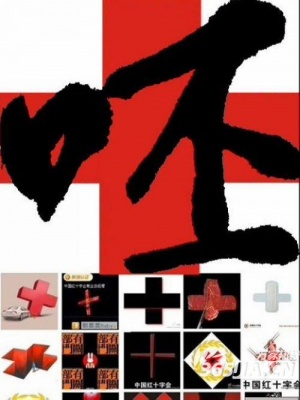Bah
来自China Digital Space
呸 (pēi): bah
After the Babe Guo scandal erupted (in which a woman who flaunted her wealth online claimed to be an employee of the Red Cross), the Red Cross issued the following press statement on its microblog:
Red Cross China again sincerely thanks the concern and oversight the public and the media have shown towards the Red Cross. We hope that going forward our work can continue to receive everyone’s support and trust. We will continue to spread the spirit of humanitarianism in a careful and practical manner and do our utmost to protect people’s lives and health. [We will] use your love and your donations to help those most in need.
中国红十字会总会再次真诚感谢广大公众和媒体对红十字会工作的关心和监督,希望在今后的工作中继续得到大家的支持和信任。我们将以谨慎务实的态度和作风,继续发扬人道主义精神,致力于保护人的生命与健康,把每一份爱心,每一笔善款,传递给最需要帮助的人。
Unfortunately, although Babe Guo’s claim to be an employee was proved to be false, damage had already been inflicted on the Red Cross's already poor reputation.
Within an hour and a half, over 63,000 people had commented on the press release; 99.9% of the comments were negative. The word “bah” was used over ten thousand times in people's comments. The Red Cross press release was dubbed “The most “bah” microblog post ever.”
The use of the word “bah” even inspired this song parody entitled “How Does One Say Bah” (呸要怎么骂出口).
Car labeled "Babe Guo" is driving through the heart of Red Cross Commerce -- the fictional Red Cross division Guo claimed to work for.
Red cross logo made out of the character for "bah."
Red cross logo made out of the character for "bah."
Red cross logo made out of the character for "bah."










